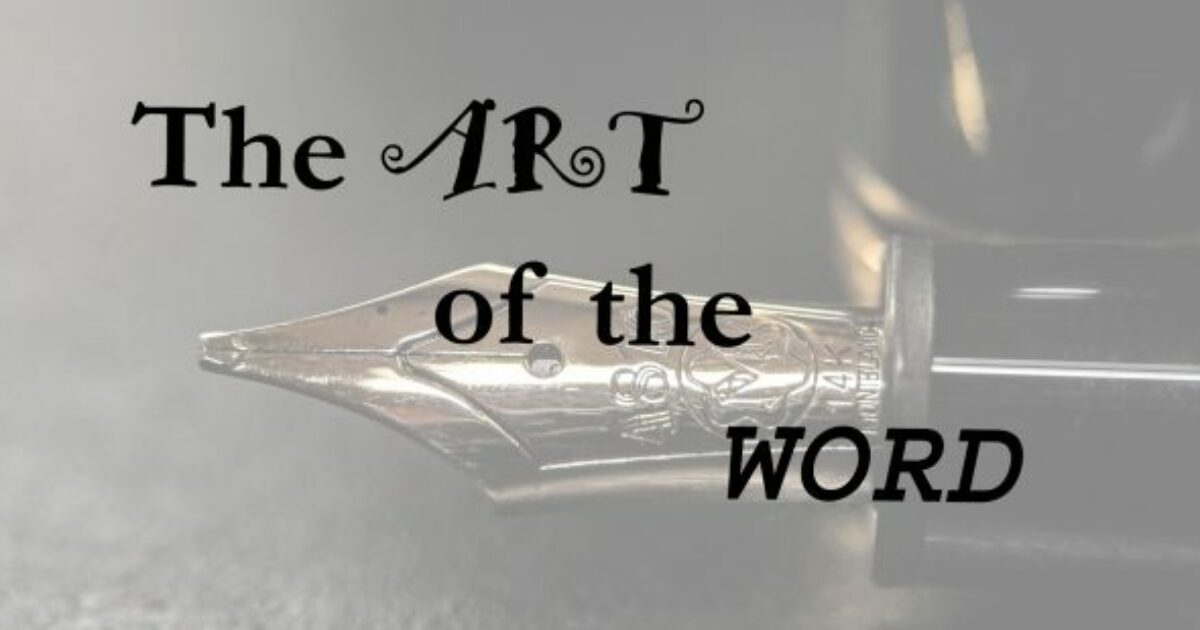Limning the Limbus
By S M Chen, posted July 27, 2016 by D Kovacs Some of you may be too young to remember the concept of dwell. Others, though older, may have missed it by virtue of its being (in this context) an automotive term, and that wasn’t part of your education or interest. That is understandable; I know little about sewing and knitting/crocheting.
In automotive terms, in a petrol engine, dwell as a noun refers to the period of time that ignition points remain closed, permitting current to flow through the ignition coil between each spark. Measured in degrees around the distributor camshaft, in a 4-cylinder engine, it might be, say, 55.
As a verb, dwell has a number of other definitions. And synonyms.
One is linger.
Lingering can be dangerous.
Solomon cautioned against looking too long at the wine when it is red. Bartenders, in particular, can attest to how many bar patrons have looked too long at their libations, more often hard liquor, and the often dire consequences that ensue.
Things might well have turned out differently had Lucifer not lingered over, nursed and eventually acted upon the envy he felt to be equal to the Most High. Or had Eve not lingered at the Tree of Knowledge of Good and Evil and subjected herself to greater temptation. And Samson not lingered with Delilah before she pestered him sufficiently that he revealed the secret of his strength.
Lingering (and, contrary to explicit instructions, looking back) cost Lot’s wife her life.
We are not told, and often don’t realize, the transition point, when looking becomes lingering, when that often fine, invisible line is crossed between observer and participant, when temptation becomes transgression.
Who knows when termites in the quiet night begin to gnaw?
It is often but moments between the time one sees a person trapped in a burning car or building, or someone at risk of drowning, and when one must decide what, if anything, to do; perhaps more commonly, what to do when one is cut off by another driver on the freeway; whether one decides to play fast and loose with figures at tax time. To be wronged, and decide whether to respond with anger or equanimity. To forgive, even when not asked.
Such opportunities (and temptations) abound daily, and our Achilles’ heels remain uncovered and not that far from the figurative river Styx.
To further complicate matters, transgressions of omission are perhaps more subtle, but no less weighty, than those of commission. In the Judgment, the Almighty will say, “For I was an hungred, and ye gave me no meat; I was thirsty, and ye gave me no drink: I was a stranger, and ye took me not in: naked, and ye clothed not: sick and in prison, and ye visited me not.” – Matthew 25:42, 43.
I was drowning, and you didn’t try to save me. You saw me suffering, and you passed by. I sought asylum, and you denied it.
Like ‘jumbo shrimp,’ ‘benign neglect’ (coined by Daniel P. Moynihan in 1969) may be an oxymoron.
Tarry is rarely used today, but is another approximate synonym for dwell. It often connotes delay. As in the parable of the ten virgins who awaited the coming of the bridegroom, who tarried until midnight.
One observation about the parable is summarized below.
The five foolish virgins were unable, when the midnight cry rang out that the bridegroom was coming, to light their lamps for lack of oil. They asked the five wise virgins for some of their oil. The latter refused, and told the others to find purveyors and buy oil from them. By the time the foolish virgins returned, it was too late; the door had shut.
I understand the meaning of the parable, and the urgent need to prepare for end-time events, and have no intent of trying to improve a perfect parable.
However, it might have been equally consistent with our understanding of divinity if the wise virgins had shared their oil with the foolish ones, even if it meant there would be insufficient oil for all.
For Christ also said, ‘Greater love hath no man than this: that a man lay down his life for his friends.’
Not to put too fine a point on it, the five foolish virgins were presumably friends of the five wise ones. If not, all the more reason for the wise to have had compassion on the foolish. We are admonished to treat our enemies no less well than our friends.
The widow of Zarephath could have easily refused Elijah’s request for bread/cake, when she herself and her son were on the brink of starvation. Her compliance and exercise of faith were rewarded abundantly; her oil never ran out.
As, similarly, might have happened had the wise virgins shared their oil.
Holy Writ is replete with examples of those whose willingness to step beyond the edge and risk the abyss without a safety net was rewarded: Abraham, Elijah, Elisha, Daniel, Daniel’s three Hebrew friends, Job, and, greatest of all, Christ Himself. The stories of countless others, some sung, many unsung, have floated down the rivers of time.
—–
In ‘A Tale of Two Cities,’ Charles Dickens has Sydney Carton say, as he goes to the guillotine in the stead of another man, “It is a far, far better thing that I do, than I have ever done; it is a far, far better rest that I go to, than I have ever known.”
I swallow hard to quell the lump that threatens to rise in my throat.
Christ prefigured Carton; both died undeserving deaths that others might live.
—–
May grace be given us such that we may one day dwell in a far, far better place.
 S M Chen lives and writes in California.
S M Chen lives and writes in California.




